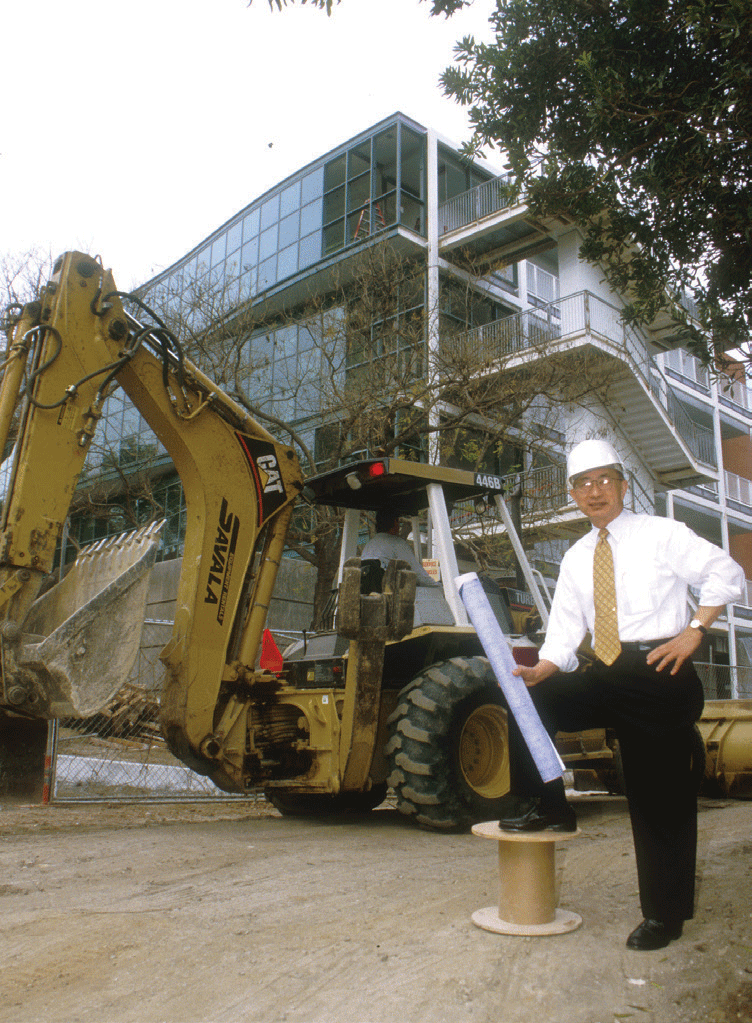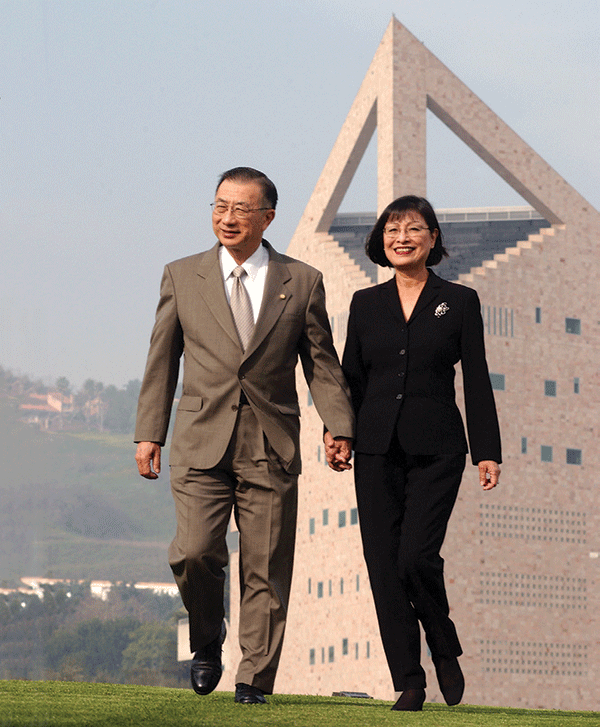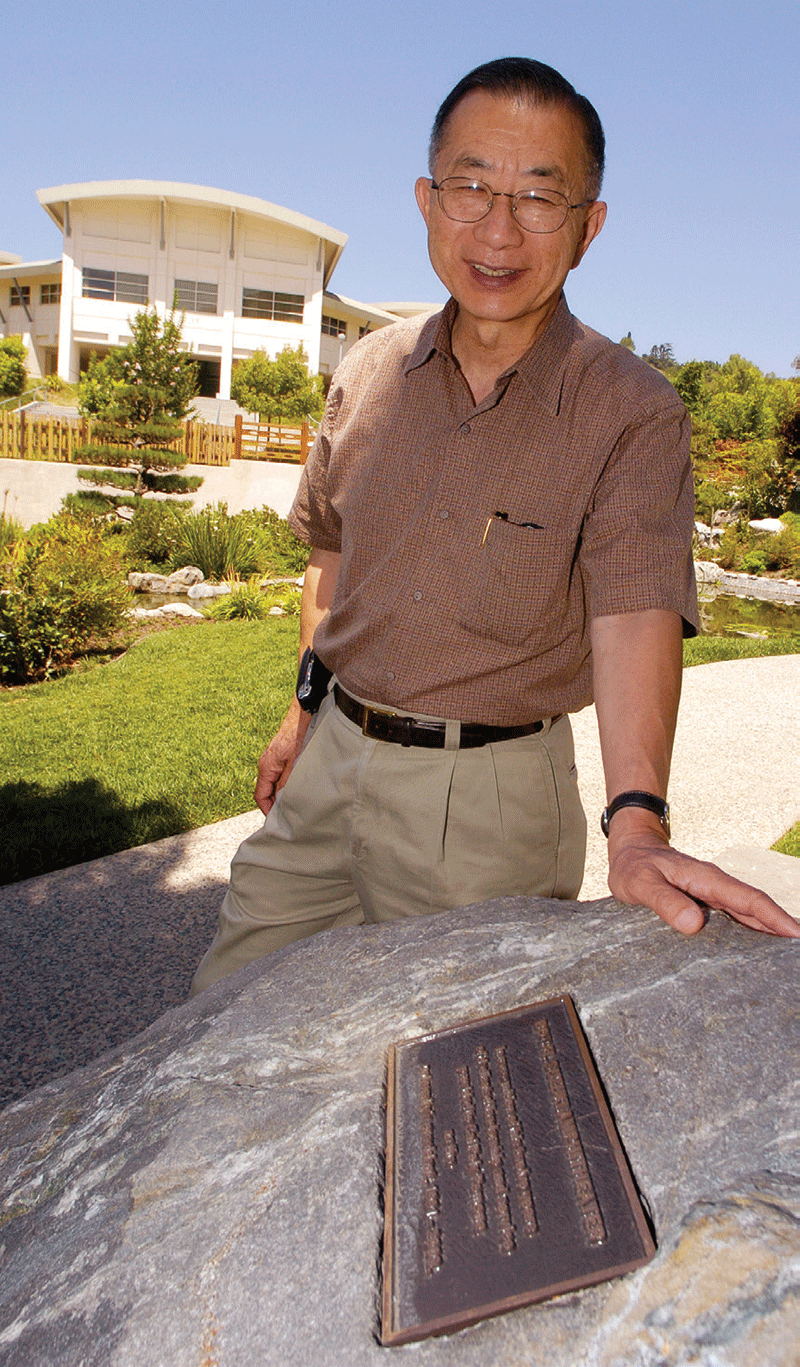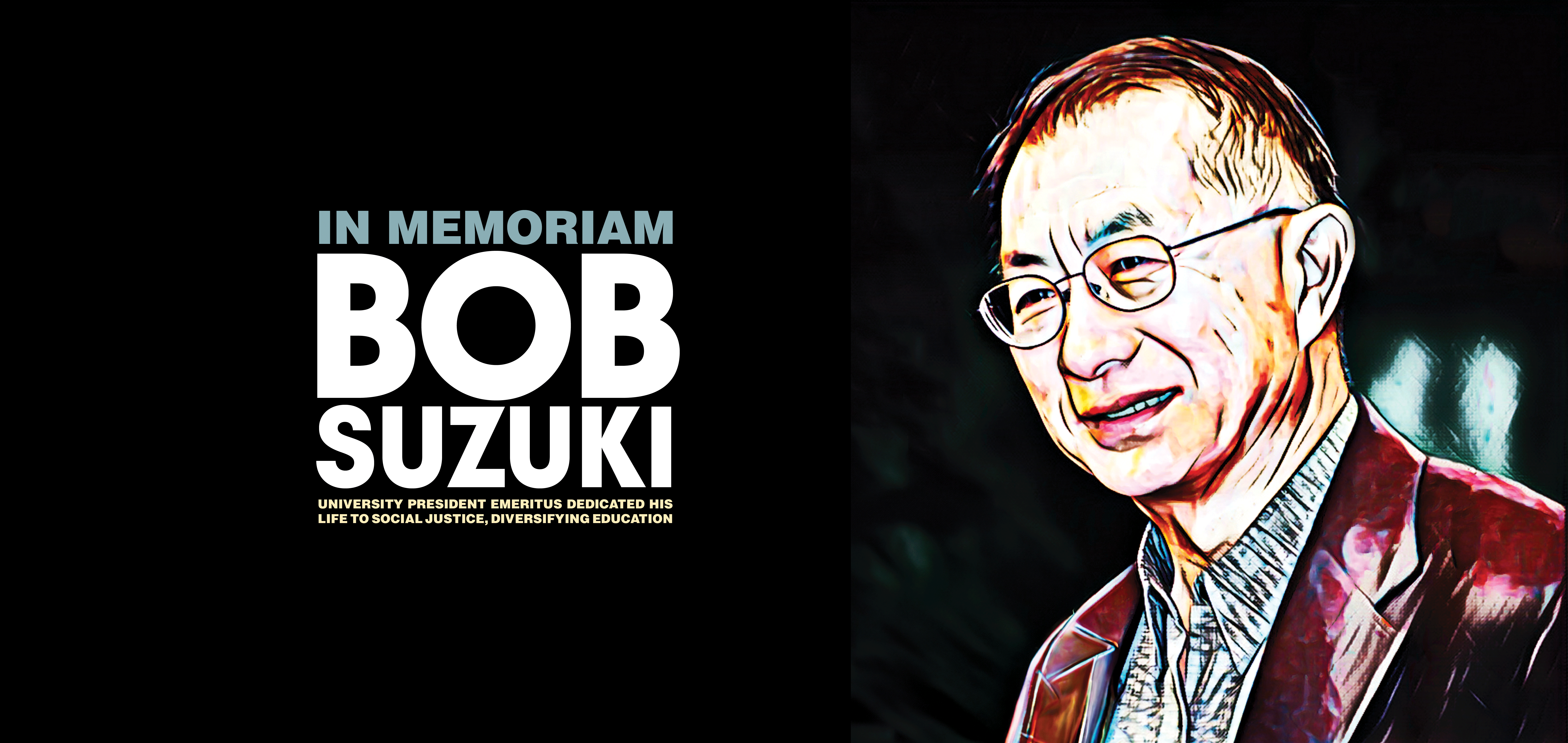In Memoriam: Bob Suzuki
By Melanie Johnson
Bob Suzuki’s childhood experiences with discrimination and his desire to see a more just and equitable world shaped his life’s work in both education and activism.
Suzuki, a pioneering agent of change, died May 1 surrounded by his family. He was 88.
Suzuki, Cal Poly Pomona’s fourth president, began his career as an engineer. However, as the civil rights movement gained momentum in the 1960s, he opted to pursue a career in education, a field more in line with his commitment to social justice and community-building.
“I think the greatest accomplishment that anyone can make is to help improve the lives of others,” he said in a story the university published during his tenure. “So, I finally decided education was the area to get involved in.”
 He became university president in 1991 and retired in 2003. Passionate about diversity and inclusion, Suzuki helped to establish the cultural centers on campus, as well as the educational equity programs. He created the Faculty Center for Professional Development to improve academic quality and forged key partnerships with the city of Pomona.
He became university president in 1991 and retired in 2003. Passionate about diversity and inclusion, Suzuki helped to establish the cultural centers on campus, as well as the educational equity programs. He created the Faculty Center for Professional Development to improve academic quality and forged key partnerships with the city of Pomona.
“Dr. Suzuki was a visionary leader. He was a loving husband, father, grandfather, and a kind friend,” University President Soraya M. Coley says. “He was a helpful advisor when I reached out, and one of the most gifted minds on multicultural education, international education and educational equity in our world. His mark on Cal Poly Pomona and the CSU system is indelible, his legacy remarkable, and his passing too soon. I will cherish and miss his helpful advice, his brilliant mind and his generous spirit.”
Suzuki earned a bachelor’s and master’s degree in mechanical engineering from UC Berkeley. After graduation, he worked at Boeing in Seattle. He earned a doctorate in aeronautics from Caltech and taught aerospace engineering at USC. Prior to coming to CPP, Suzuki was the dean of graduate studies and research at Cal State LA and vice president for Academic Affairs at CSUN. There, Suzuki worked to increase grant funding for instruction and research, bolster diversity among faculty and raise the graduation rates of underrepresented students.
As president at Cal Poly Pomona, Suzuki raised more than $110 million to help fund more than $200 million in new construction projects on campus, including a state-of-the-art engineering building, an expanded complex for what was then known as The Collins School of Hospitality Management, a biotechnology building and the Rain Bird BioTrek learning center. Other projects included his oversight of the campus’ first high-speed network, improving hardware and software infrastructure, increasing research and scholarship opportunities, and the founding of the International Polytechnic High School (iPoly). He also notably was responsible for the Aratani Japanese Garden, one of the most picturesque gathering places on campus.
Suzuki was born in Oregon in 1936. When he was a young boy, he and his family were confined in a Minidoka, Idaho, internment camp for Japanese Americans during World War II. That experience shaped him.
“It was my earlier experiences that led me to get deeply involved in the civil rights movement and become an advocate for the underdog groups of society,” Suzuki once said.
 Inspired by Malcolm X and Brazilian educator Paulo Freire, Suzuki and his wife, Agnes, became change agents — picketing, rallying and organizing for action. He became vice chair of the advocacy committee tasked with desegregating Pasadena schools and led a national campaign for the Congressional repeal of the Emergency Detention Act of 1950, a McCarthy-era law enabling the federal government to detain people they labeled suspected subversives without due process.
Inspired by Malcolm X and Brazilian educator Paulo Freire, Suzuki and his wife, Agnes, became change agents — picketing, rallying and organizing for action. He became vice chair of the advocacy committee tasked with desegregating Pasadena schools and led a national campaign for the Congressional repeal of the Emergency Detention Act of 1950, a McCarthy-era law enabling the federal government to detain people they labeled suspected subversives without due process.
Suzuki also tapped into his work in academia to advocate, publishing numerous papers and lecturing on multicultural/international education, educational equity and on Asian Americans. The father of three and grandfather served as a member of the National Science Board and the California Student Aid Commission. He received several awards for his contributions to community service and civil rights advocacy. President Bill Clinton named Suzuki to serve on the National Science Foundation in 1997. The National Conference on Race and Ethnicity in Higher Education honored him in 2016.
Sociology Professor Emerita Mary Kunmi Yu Danico, a close friend of the Suzuki family, says that while Suzuki received many awards and accolades from national and local organizations, he was humble about his accomplishments.
“He was an activist, and most did not know this about him,” she says. “His work in anti-racist, anti-oppression, and social justice work began early in his career, and he chose to pursue activism in higher education over his early training as an engineer.
“The infrastructures that are in place for minoritized communities began with President Suzuki,” she says. “We stand on his shoulders, and I hope that folks will forever remember how his leadership has benefited us not only at CPP but in higher education too.”
Sandi Davis worked for four CPP presidents during her 42-year career on campus, including Suzuki. Davis (’72, business management) lauds Suzuki for both his dedication to the university and his appreciation for staff.
 “Dr. Suzuki was a brilliant man, and I was so honored to work for him as his executive assistant in the President’s Office. He was kind, hardworking, and treated me with great respect. As president, he was always supportive of me, personally and professionally, and often said how much he appreciated my work. I admired him a great deal and was very sad to hear of his passing. His contributions to Cal Poly Pomona will never be forgotten.”
“Dr. Suzuki was a brilliant man, and I was so honored to work for him as his executive assistant in the President’s Office. He was kind, hardworking, and treated me with great respect. As president, he was always supportive of me, personally and professionally, and often said how much he appreciated my work. I admired him a great deal and was very sad to hear of his passing. His contributions to Cal Poly Pomona will never be forgotten.”
Pasadena City College President Jose Gomez (’93, sociology) met Suzuki when they were both new presidents on campus — Gomez was elected ASI president the same year that Suzuki was appointed university president.
Over the years, they saw each other at campus and alumni events, but they bonded in 2009 when Gomez was hired as an associate vice president at Cal State LA. Suzuki lived near Cal State LA, so they would often get together for breakfast or lunch, as Gomez rose to executive vice president and provost.
“As I charted my own path, I realized how much I had learned from him while I was a student at Cal Poly Pomona,” Gomez says. “I was so lucky and fortunate to be in his space so often.”
Gomez added that he especially cherishes their visits and talks in recent months.
“I was touched by how proud he was of me and the advice that he gave me about being a president,” he says. “He gave me good advice and he gave me confidence. He always said the right things. I wouldn’t be here if not for him. I will cherish our relationship and all of the incredible guidance and wisdom he imparted for years to come.”
“Bob was a no-nonsense kind of guy. He was fixed on goals he wanted to accomplish, and he moved in the direction of those goals very effectively. What I was most impressed with was his dedication to students and his commitment to fostering diversity throughout the campus. He was really a student-focused president.”
“President Suzuki always made time for our students and was empathetic to our minoritized first-generation students. He believed in the power of pipelines for success."
“It would be difficult to find a harder working or more dedicated leader than Dr. Bob Suzuki, and I was fortunate enough to work with four of our outstanding presidents over a 40-year period. Dr. Suzuki lived and breathed the university, and you could count on him to always have the best interests of the students in mind. Much has been written about his desire to make this country a better place through education, and I am proud to have been a part of his staff.”

